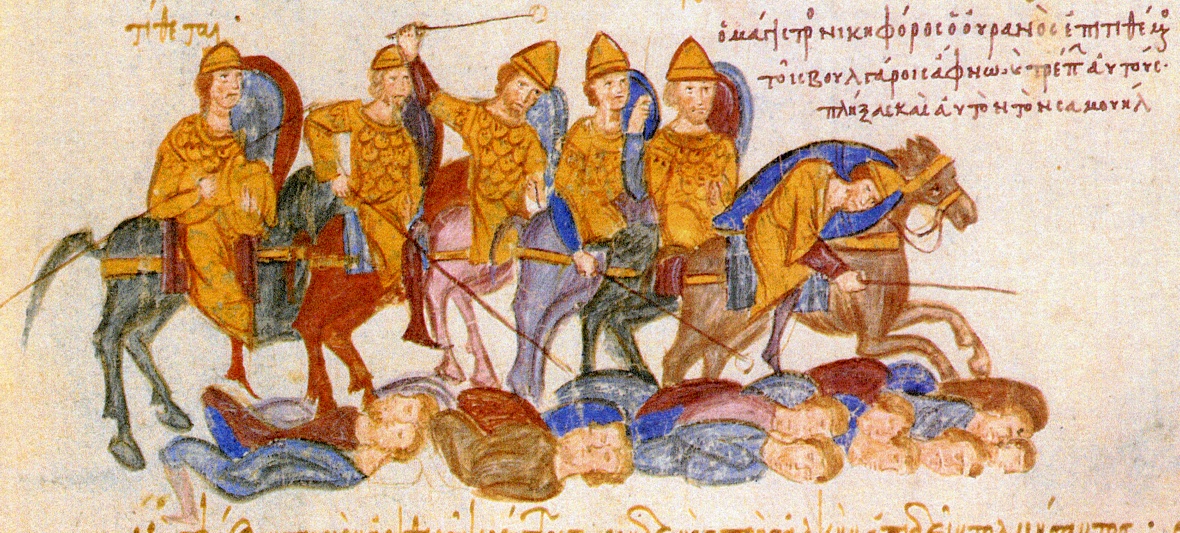Heaven On Earth
Emperor Alexius I: Child Of Oblivion
(Mood Music)
After thoroughly crushing the populace of Hungary, the two armies moved elsewhere. For the Russians, southern Germany was next, for the Empire, northern Italy. Imperial reinforcements from Hungary arrived in the summer of 1110 to aid the army already besieging Venice. Now the Orthodox forces besieging the city of Venice were raised to about 50,000. This rejuvenation would be the Imperial army’s salvation and Venice’s doom.
Before the forces arrived, Venice was holding out rather well. Their navy reigned supreme on the Adriatic, keeping trade and supplies still open. And the many defenses of both water and stone, surrounding the city kept it safe from the Orthodox attacks, save for occasional bombardments by large trebuchets and catapults.
But with the new reinforcements came new hope and more siege weapons. The Imperial army, rejuvenated and with stronger morale, once again gave an endless barrage of flaming stones onto the city. The walls of Venice, once strong and well-maintained, were now overwhelmed by the sheer numbers of the Imperial army. And so they crumbled.
And with the destruction of the Venetian walls, came the exposure of several bridges leading into the main city itself. The Imperial generals took advantage of this and rushed their forces to these bridges. But the Venetians could also use these bridges to their advantage. Even though the Venetians were outnumbered, the bridges provided a level battlefield. The bridges would squeeze in both forces across a narrow front and make numbers useless.
A face-off between Eastern and Western soldiers on a bridge near Venice
Instead, skill would decide the victor. And the Venetians led in that department. The highly trained Venetian troops were able to hack down the numerous, yet non-professional, Orthodox troops. At one point in the battle, it seemed as if the Venetians would win. The Imperial generals realized this and made a drastic decision. They moved their siege engines close to the bridges and fired upon the structure of the bridges themselves. Within a couple of volleys, the bridges collapsed, sending both Orthodox and Venetian soldiers into the summer waters below. Hundreds died, mainly because their heavy armor made it nearly impossible to swim.
The Venetian troops, after seeing what the Orthodox siege engines were doing, evacuated their troops off the bridges. But the Orthodox leadership left just one bridge unscathed. It was on this that the Imperial army now concentrated its forces. And since this bridge was all but undefended, thousands of Imperial troops were able to cross without any interference. Once inside the city, the Imperial numbers won out over the Venetian skill on the much wider battleground.
A manuscript depicting Orthodox cavalry the enemy dead, and killing some wounded Italians as well, in Venice
So, by the early morning of June 19th 1110, Venice was in Imperial hands. The vital and rich Catholic trading center was in Orthodox hands. Its civilians were not treated like the Hungarians. Instead, they were left alive and allowed to carry on their regular lives, as long as they did not interfere with Imperial matters. Most of the Imperial stayed within the city for the inevitable counterattack from the Holy Roman Empire. Meanwhile, a smaller force of about 5,000 Orthodox troops would roam the surrounding area and secure the many villages and towns of Venetia.
While all this was going on, the Russians were continuing their rampage in southern Germany and Bohemia and the siege of Rome was continuing, with barely any conflict at all. The Russians repeated their tactics of brutality and massacred much of the populace, though much less publicly and on a lesser scale compared to Hungary, as to not attract unwanted attention from Alexius I. It was in Germany that something would happen that would shape the world in a way unprecedented. It was in Germany that a battle would be fought that is second only to Manzikert in significance.

 asd
asd







